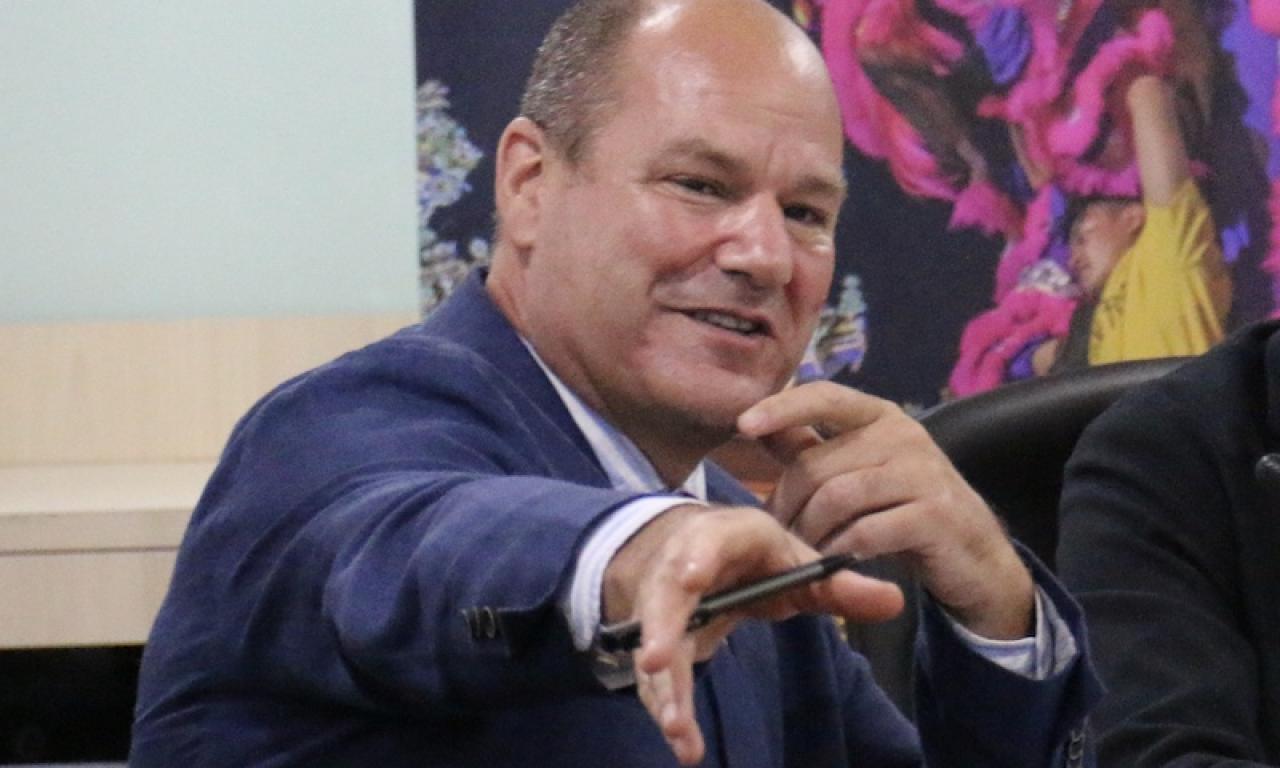
WorldFish’s Dr. Eddie Allison was named among the top 0.1 percent of researchers by Clarivate in 2020, 2021 and 2022, measured by the number of times other scientists cite his work in their research publications.
PENANG, November 29, 2022 – WorldFish’s Dr. Eddie Allison was again named among the world’s top 0.1 percent of researchers by Clarivate in their annual list of Highly Cited Researchers (HCR). He also received this recognition in 2020 and 2021, making this the third year running he has been recognized as one of the world’s most highly cited researchers.
On receiving the recognition for the third time, WorldFish Acting Director of Sustainable Aquatic Foods Systems Dr. Eddie Allison said:
“This is an acknowledgment of my contributions to a developing school of thought that promotes the crucial role that diverse aquatic foods and food systems approaches have in the agenda for sustainable development, working within research teams made up of my students, colleagues and collaborators.”
The recognition in Clarivate’s 2022 HCR list was measured by the number of times other scientists cite his work in their research publications. Allison was one of 6,938 scientists from across 70 countries/regions who made a major contribution to his area by publishing highly cited publications in the past ten years. The HCR list is made up of authors who publish many such articles and whose publications are in the top 1 percent of citations in each subject according to the Web of Science index.
On the significance of this recognition, WorldFish Interim Director General and CGIAR Acting Senior Director of Aquatic Food Systems Dr. Essam Yassin Mohammed said:
“This is a remarkable feat indeed and I applaud Dr. Eddie Allisson on this achievement. To be part of this list once is commendable enough but to be recognized for three years in a row shows his consistency in producing quality and impactful work that is relevant to the needs of the world.”
Allison is an interdisciplinary researcher with more than 30 years of experience in academia and public policy. His widely recognized contributions to the field of aquatic food systems have influenced public policy in sub-Saharan Africa, Asia, Oceania, Latin America, North America and Europe. His work also addresses livelihoods, climate change adaptation and sustainable fisheries and aquaculture development.
###
NOTES TO EDITOR
Visit the WorldFish website for more information: https://www.worldfishcenter.org/
Photography:
https://www.flickr.com/photos/theworldfishcenter/
Press contact:
For more information or to request an interview:
Sean Lee Kuan Shern
WorldFish Science Communications Specialist
Email: K.Lee@cgiar.org
About WorldFish
WorldFish is an international, nonprofit research and innovation institution that creates, advances, and translates aquatic food systems science into scalable solutions. We vision an inclusive world of healthy, well-nourished people and a sustainable blue planet, now and in the future. Our mission is to end hunger and advance progress on the 2030 Sustainable Development Goals through science and innovation to transform food, land, and water systems with aquatic foods for healthier people and the planet.
For over 45 years, WorldFish's data, evidence, and insights have shaped practices, policies, and investments to end hunger and advance sustainable development in low- and middle-income countries. We have a global presence across 20 countries in Asia, Africa, and the Pacific, with 460 staff of 30 nationalities deployed where the most significant sustainable development challenges can be addressed through holistic aquatic food systems solutions. Embedded in local, national, and international partnerships, our work sets agendas, builds capacities, and supports decision-making for climate action, food and nutrition security, sustainable fisheries and aquaculture, blue economy, One Health, and AgriTech, integrating gender, youth, and social inclusion.
A core element of the 2030 WorldFish Research and Innovation Strategy: Aquatic Foods for Healthy People and Planet is focused on building the resilience of aquatic food systems to shocks, which is critical to COVID-19 response and recovery.
WorldFish is part of CGIAR, the world's largest agricultural research and innovation network.
For more information, please visit https://www.worldfishcenter.org.
About CGIAR
CGIAR is the world’s largest global agricultural innovation network. We provide evidence to policy makers, innovation to partners, and new tools to harness the economic, environmental and nutritional power of agriculture.
CGIAR has a wealth of experience and knowledge spanning 50 years that builds on a track-record of innovation and world-class research. Thanks to our funders, CGIAR research has transformed the lives of hundreds of millions of people through tangible research outcomes.
The 15 CGIAR Research Centers are independent, non-profit research organizations, conducting innovative research. Home to more than 8,000 scientists, researchers, technicians, and staff, CGIAR research works to create a better future for the world’s poor. Each Center has its own charter, board of trustees, director general, and staff. CGIAR Research Centers are responsible for hands-on research programs and operations guided by policies and research directions set by the System Management Board.
For more information, please visit https://www.cgiar.org.